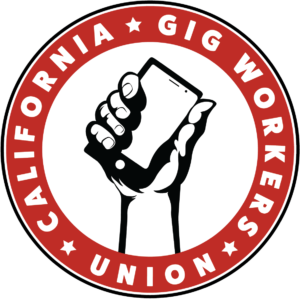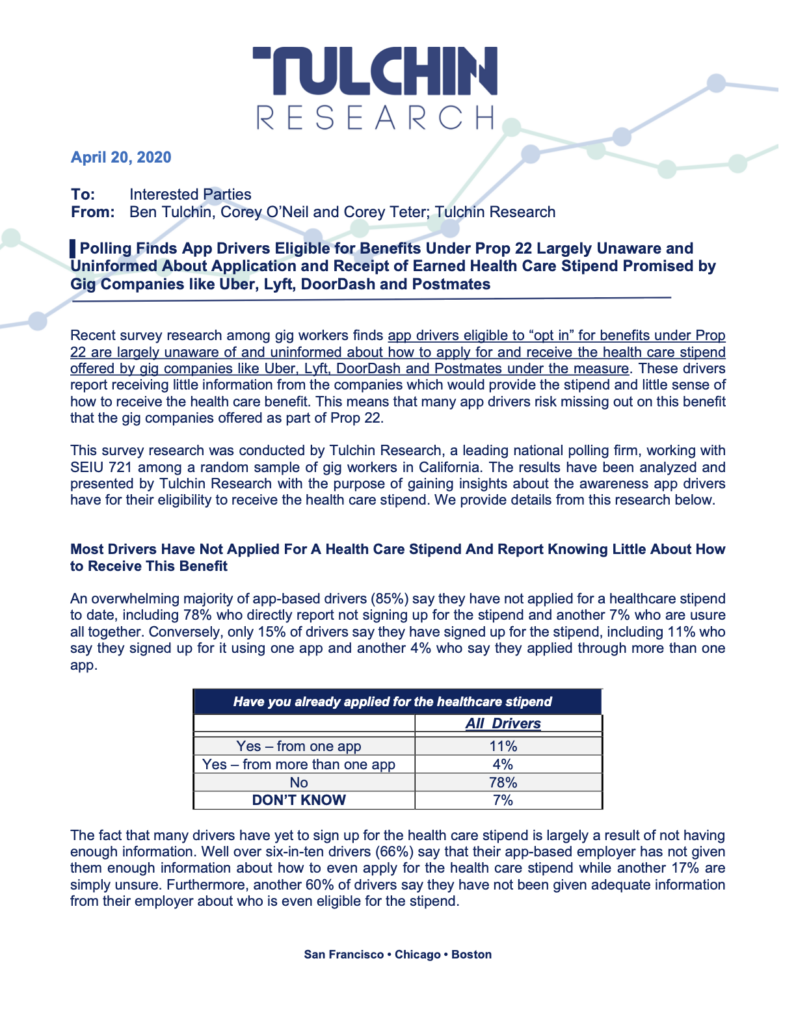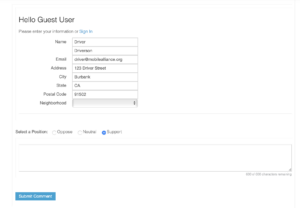CA Gig Economy Workers Blow Whistle on Broken Prop 22 Healthcare Promises in Virtual Press Conference; New Survey Results Showing Massive Ineligibility and Lack of Access
86% of Drivers Surveyed Likely to be Deemed Ineligible for Promised Prop 22 Health Stipend; Drivers Report Barriers, Mass Confusion Over Process and Inadequate Explanation from Gig Companies
CALIFORNIA – On April 29, rideshare and delivery drivers held a press conference exposing the broken promises of Prop 22, using survey data collected from more than 500 California gig workers in a virtual press conference. You can view a recording of the event here.
“When I heard about the healthcare stipend that the gig companies are offering to drivers as part of Prop 22, I was excited. Last year, the gig companies advertised Proposition 22 would give drivers great new benefits. Some voters supported Prop 22 because they thought drivers would be given healthcare. I don’t trust that gig companies care about drivers, but I thought healthcare benefits were a step in the right direction,” said Jorge Orisontes, an Uber and Lyft driver from Sacramento who drives mostly in the Bay Area.
The new study is the first in-depth analysis of how gig companies’ self-interested interpretation of Prop 22 aims to exclude drivers from the promised health stipend, a key benefit that was heavily publicized in Uber and Lyft’s record-breaking $220 million “Yes on 22” campaign push last year.
Platforms have created barriers to accessing the healthcare stipend that are not mandated by Prop 22, leaving tens of thousands of uninsured or working-poor drivers without the promised healthcare stipend that Californians voted for last November.
“Clearly, app drivers are lacking information about how to receive the healthcare stipend offered by gig companies as part of Prop 22. They report not having or receiving the information they need in order to know whether they qualify for the stipend or, if they do qualify, how to receive it,” said Ben Tulchin, Founder and President of Tulchin Research, a national polling firm based in San Francisco. “The vast majority of drivers fall outside of the very restrictive healthcare insurance requirements needed to qualify for the stipend. Nearly a third of these workers report being uninsured altogether, so there are a lot of app-based drivers, based on our survey, who are driving around without health insurance. We think that’s a major, major problem and concern. The companies promised that they would address this problem and clearly they’re coming up short.”
Drivers also report mass confusion regarding the healthcare benefit, with 66% reporting they had not been given enough information from their employers about how to even apply for the stipend, and 60% reporting they have not been given adequate information about which drivers are eligible.
The failures of the Prop 22 healthcare stipend are yet another example of the way the gig economy passes costs on to their workers and the public coffers while siphoning up private revenue.
“I’m the person that Californians thought they were helping when they voted yes on Prop 22. I’m a working mom trying to provide for my family” said Neide Tameirão, an Uber and Lyft driver based in Irvine. “According to Uber, I’m too poor to be eligible for a health insurance stipend. I worked all of the engaged hours required for the stipend, but because I’m on Medi-Cal, I’m not eligible to receive it.”
Drivers are calling on gig companies to honor the promises of the Prop 22 campaign and automatically disburse health insurance stipends to all drivers who met the minimum requirements for engaged time working.
Survey Results Memo


